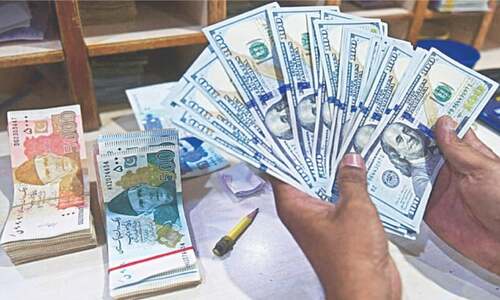BERLIN: European Central Bank (ECB) Vice-President Vitor Constancio said in a magazine interview he expected the eurozone inflation rate to turn negative in the coming months but that if this was just a temporary phenomenon, he did not see a risk of deflation.
Annual inflation in the eurozone slowed to 0.3 per cent in November as energy prices fell, putting it well below the ECB’s target for inflation close to but just below 2pc.
In early December the ECB had forecast 0.7pc inflation for 2015 but Constancio told Germany’s WirtschaftsWoche oil prices had fallen by an extra 15pc since then and that, while this should support growth and so drive up inflation in the longer term, it created a tricky situation in the short-term.
“We now expect a negative inflation rate in the coming months and that is something that every central bank has to look at very closely,” Constancio was quoted as saying in an interview due to be published on Monday.
But he said that several months of negative inflation would not translate into deflation: “You’d need negative inflation rates over a longer period for that. If it’s just a temporary phenomenon, I don’t see a danger.”
Constancio said the eurozone was not in deflation and there was also not a risk of this for every country in the single currency bloc. He added that rising productivity in countries like Ireland and Spain could, for example, create scope for wage rises, which would counter deflation dangers.
He said forecasts from the International Monetary Fund, the European Commission and OECD that the eurozone’s economic weakness would continue until 2018 meant there would be downward pressure on inflation until then.
By buying asset-backed securities (ABS), or bundled loans, which the ECB began doing on Nov 21, as well as purchasing covered bonds and offering new loans to banks, the ECB aims to increase the size of its balance sheet back to levels seen in early 2012.
Constancio said there had been no decision on what extra measures the ECB would take to bring about monetary easing next year, adding that the bank would, in early 2015, assess the effectiveness of measures it had taken this year.
He said the ECB needed to employ all monetary policy tools at its disposal, adding that the bank must act if inflation was too low to maintain its credibility and so would need to use channels it had not touched before.
Published in Dawn December 21th , 2014














































Dear visitor, the comments section is undergoing an overhaul and will return soon.